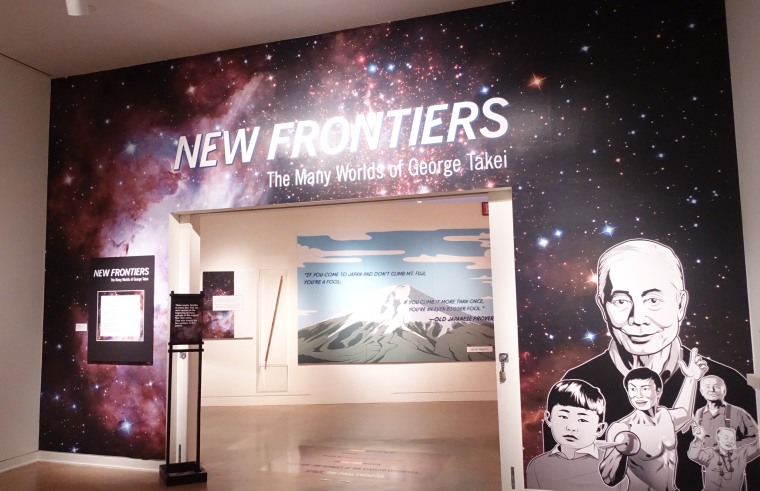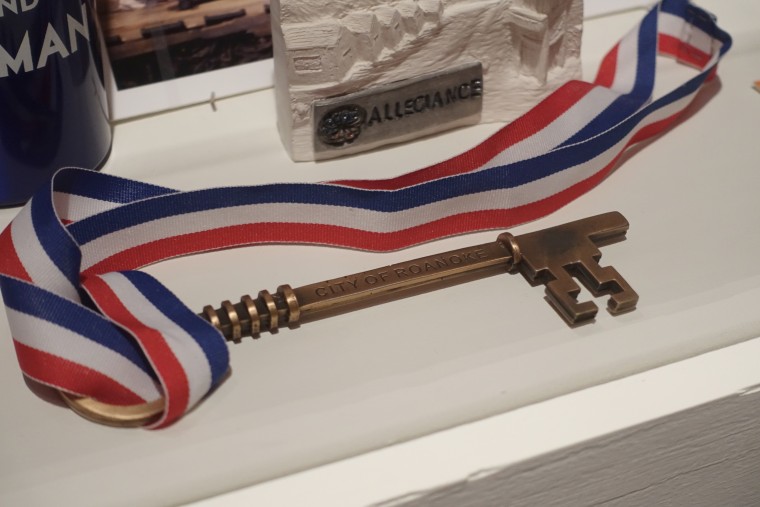Whether it's challenging stereotypes about Asian Americans on television, running for public office, or speaking out against President Donald Trump's rhetoric, George Takei's life has been defined by his ability to break barriers and continuously establish himself as an icon for each new generation.
"I have been shaped and formed by the people that I've met, been impressed by, or have trouble with," Takei told NBC News at Los Angeles' Japanese American National Museum, which is home to a new exhibit about Takei's life. "I'm the product of all this, and to be able to see it as a museum exhibit...it's pretty exciting."

From family photos and his husband's handwritten wedding vows to film scripts and campaign memorabilia from his 1973 city council bid, "New Frontiers: The Many Worlds of George Takei," JANM's largest collection about one individual, explores the eight decades of Takei's life — a life with so many stages, exhibit curator Jeff Yang said, that it took years to sort through over 100 boxes.
RELATED: George Takei Honored With ‘Ride of Fame’ Induction, Double Decker Bus
"Science fiction fans and fans of popular culture known him as Sulu from 'Star Trek,'" Yang told NBC News. "And there are those who know him obviously for his advocacy of marriage equality and LGBTQ rights. There are those who know him from social media as the guy who can always generate a laugh, a raised eyebrow, or maybe a thought-provoking idea. But where he began was behind barbed wire, and in so many ways, that shaped his identity."

"New Frontiers," which runs through August, begins with personal items belonging to Takei, including a cypress stump his father took from the Rohwer, Arkansas, incarceration camp. The exhibit also showcases the pilgrimage stick Takei took with him to the summit of Mount Fuji, which inspired the format of the exhibit.
"Every stage, every station in this trip up to the summit of this mountain, this sacred mountain, you get a symbol burned into it to mark your passage," Yang explained. "We thought that was a terrific way of telling this story: we have five stations, five different 'frontiers' that have been passed, and at each stage, you're asked to pause and reflect — to get a stamp, if you will — and then to move onto the next."
For Takei, seeing each "frontier" represented in the museum — surviving the incarceration camps, entering an acting career, using his fame to advocate for LGBTQ rights, making his Broadway debut in his 70s, and becoming a social media celebrity — has been humbling and a reminder of a long career that still has room to grow.
"I'm still here. I'm not history yet," Takei said. "We've got much further to go."
Follow NBC Asian America on Facebook, Twitter, Instagram and Tumblr.